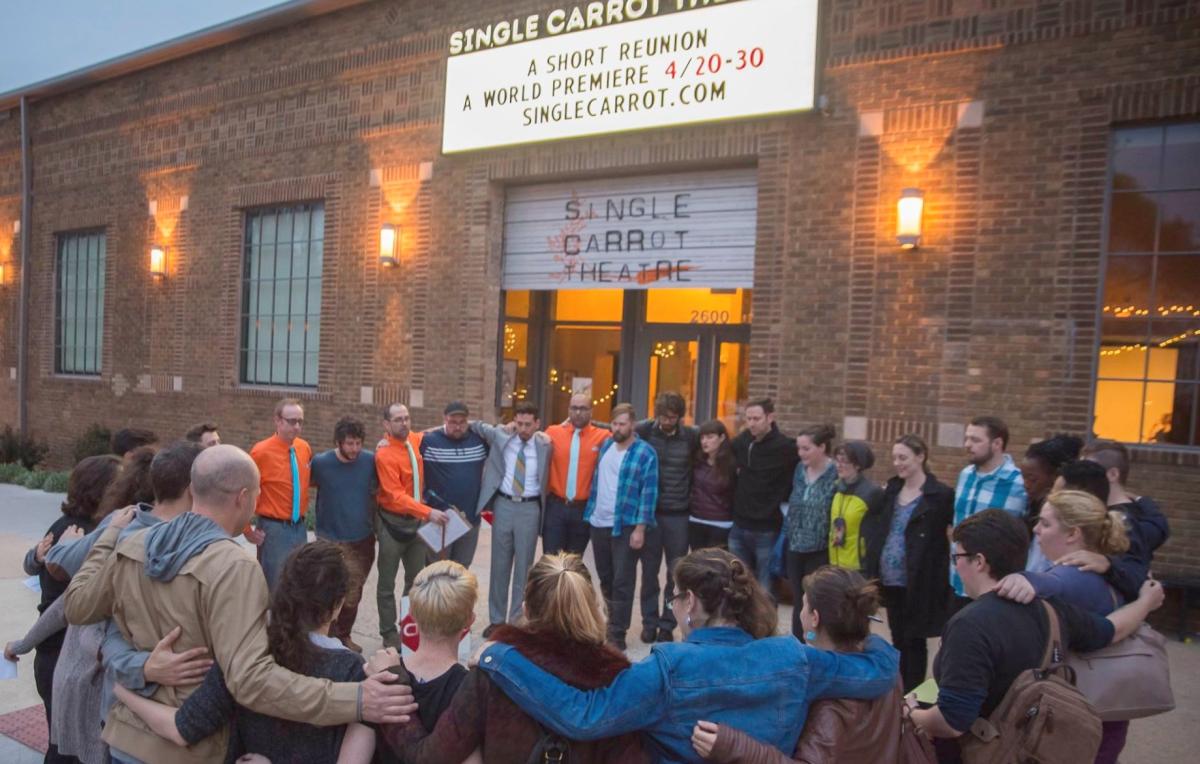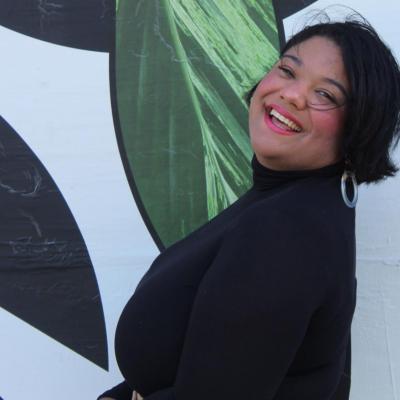
Last week, Single Carrot Theatre—Baltimore’s roving nonprofit ensemble known for its experimental, community-focused productions—announced plans to close this summer after 15 years. The company has canceled its remaining productions for the year, including poet Aziza Barnes’ BLKS and playwright Clare Barron’s Dance Nation.
In an announcement posted to the theater’s website on January 25, founding member and longtime artistic director Genevieve de Mahy described the reasons behind the closure as “complex,” citing her planned departure from the company—along with that of longtime executive director Emily Cory—as well as challenges linked to staffing and resources prompted by the pandemic.
“In general, the theater industry—and in some ways, the nonprofit industrial complex—is not designed to be sustainable,” de Mahy tells us, referring to the administrative nature of U.S. theater companies, many of which lack resources in marketing and fundraising. “The system isn’t set up to allow the arts to thrive.”
Aside from funding, an even bigger issue was a lack of hands-on help.
“Theater structures always run on a deficit—not of money, but of human resources,” de Mahy says. “It relies on people to work, either on a volunteer basis or to be underpaid and overworked. That’s how the whole industry survives. And there’s been a reckoning of that since COVID. While theater-makers still really love theater, we’ve refocused how we want to spend our time.”
Since founding members relocated the theater from Boulder, Colorado to Baltimore in 2007 (Single Carrot inhabited a home in Remington before taking a nomadic approach four years ago), the company has made its mark on the local arts community with a roster of nearly 60 productions. Among the original highlights throughout the years were the absurdist Putin on Ice (that isn’t the real title of this show); pandemic-safe Healthy Holly’s Hidden Hideaway, performed by phone; and Promenade, a 2017 production that took audience members on a bus tour of Baltimore neighborhoods while they listened to vignettes by performers via headphones.
For the “carrots”—a term that the company uses internally to refer to Single Carrot’s founding, current, and departed members—looking back on the theater’s 15-year run sparks a flood of powerful memories.
“Our opener for season two was a show called Food for Fish, which was about a woman handling the death of her father and the suicide of her boyfriend,” remembers Jessica Murphy Garrett, a founding member and current board member. “I did that show about eight weeks after my own mother committed suicide. My entire healing process was doing that show, and I really left my guts out on that stage every night.”
Additionally, throughout the years, “I played a chicken, I played a prostitute, I played a patient at an institution—I played all kinds of characters that were tremendously impactful for me,” Garrett says.
For former managing director and board member Alix Fenhagen, a show that sticks out is Hotel Cassiopeia, which was performed during the theaters’ fifth season.
“It was the first time I had ever worked with a company, and I just remember it being really exciting and collaborative,” Fenhagen says. “Genevieve was directing, and, at some point, she asked us to figure out a moving sequence involving a bathtub. We came back and did it. All the elements sort of came together. The music came in and it was just this really beautiful, magical theater moment. Single Carrot had a lot of those moments that push audience’s expectations of what was typical for a play, but also allowed audiences to connect.”
De Mahy credits memories like these to “the incredible intimacy that has come out of our ensemble.”
“When we founded Single Carrot, 10 of us moved out here and we didn’t know anybody else,” she adds. “We didn’t have any other connections, or anything else to do but start this theater company. Our whole life—living, breathing, socializing—everything was centered around Single Carrot. And I think, in some ways, that foundation is really what allowed it to last.”
In the next few months, Single Carrot hopes to end its tenure on a high note by wrapping up its array of educational programs, some of which are taught in city schools. The staff is also collecting memories from longtime audience members as part of a social media storytelling project. Additionally, while tying up loose ends, the board hopes to publish case studies on the theater’s growth, in an effort to hopefully help other nonprofit arts organizations thrive.
“We have a lot of physical and intellectual resources to share with the community at large,” Fenhagen adds.
While the closure is bittersweet, de Mahy looks forward to celebrating the theater’s run with her Single Carrot family.
“Even though we’re closing, there’s still been whisperings amongst our ensemble of doing a retreat, just to hang out and grieve together,” she says. “I don’t think that would happen at every theater company.”
